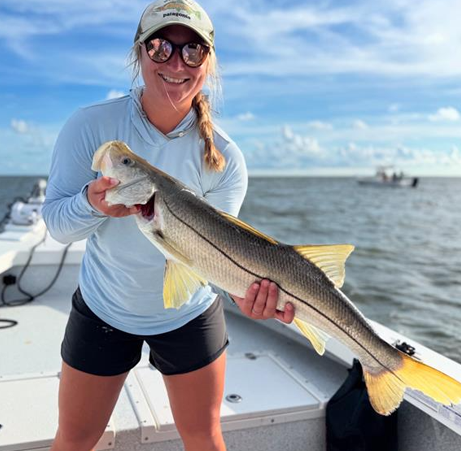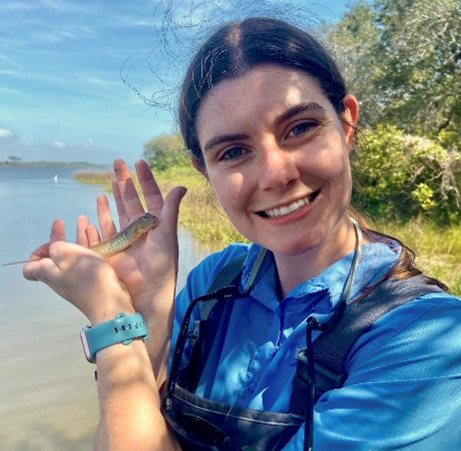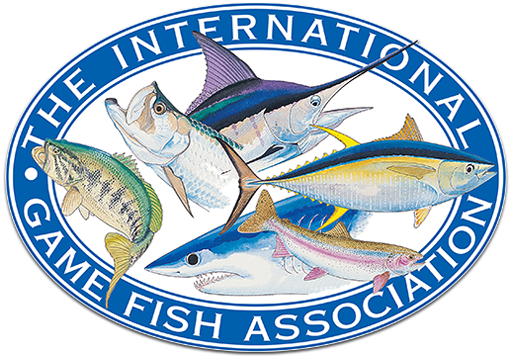Announcing the 2025-2026 Forage Fish Research Fellows: Advancing Florida's Coastal Ecosystem Studies

The IGFA is proud to announce the new Forage Fish Research Program (FFRP) 2025-2026 Fellows, chosen by the Florida Forage Fish Coalition, which includes the IGFA, Pew Charitable Trusts, Fish Florida, Florida Wildlife Federation, Angler Action Foundation, American Sportfishing Association, Tampa Bay Estuary Program, and Wild Oceans.
Entering its ninth year, the FFRP has a strong contingent of data partners for the Fellows to collaborate with in their research, including FWC’s Fish and Wildlife Research Institute, Southwest Florida Water Management District, Tampa Bay Estuary Program, Florida Department of Environmental Protection, and the Aquatic Preserve Program. These partnerships illustrate the FFRP’s commitment to multi-disciplinary collaboration and research on critical habitats and fisheries in Florida and beyond.
Our 2025-2026 FFRP Fellows are Alex Walus from the University of Florida’s School of Natural Resources and Meredith Pratt from the University of Central Florida.

Alex Walus
University of Florida’s School of Natural Resources
Alex’s project will improve our understanding of how forage fish tropicalization reshapes coastal food webs along Florida’s Gulf Coast. She will utilize long-term Fisheries Independent Monitoring (FIM) trawl data collected across five estuaries that comprise a subtropical-to-temperate gradient to advance three main questions, including 1) How have forage fish communities shifted in abundance, composition, and body size over the last two decades? 2) How has the environmental change (i.e., temperature rise and habitat quality) influenced the rate of forage fish community change over time? 3) What fish traits best predict forage fish community winners and losers under tropicalization?
This research will provide managers with clear insight into how tropicalization is reshaping forage fish communities, including the quality and availability of prey for economically and ecologically important sportfish. It may also benefit future stock assessments and habitat protections in the face of shifting ocean conditions.

Meredith Pratt
University of Central Florida
Meredith’s project aims to evaluate long-term changes in fish community structure across more than 400 km of Florida’s east coast by integrating multidecadal datasets from FWRI’s Fisheries Independent Monitoring (FIM) program with empirical data collected at the Guana Tolomato Matanzas National Estuarine Research Reserve (GTMNERR). Her work has four main questions, including 1) How have fish community distributions and assemblages changed over time along Florida’s east coast? 2) Do diversity indices (e.g., abundance, richness, Shannon diversity, evenness) reflect temporal shifts in fish community structure? 3) What environmental drivers best explain observed changes? 4) Are there regional differences in community responses to environmental perturbations across the three FIM subregions: Northeast Florida, Northern Indian River Lagoon, and Southern Indian River Lagoon?
This research will provide managers with an improved understanding of gradual and acute changes to Florida estuaries due to shifts in climate and habitat and may lead to more effective adaptive ecosystem-based management strategies.
The 2025-2026 Forage Fish Research Program Fellows, Alex Walus and Meredith Pratt, are set to significantly contribute to our understanding of Florida's vital coastal ecosystems. Their research will provide valuable insights into species range shifts, trophic interactions, environmental stressors, and forage fish community structure, helping to guide conservation efforts and sustainable management of Florida's aquatic preserves and fisheries. We look forward to seeing the impact of their work on preserving these critical habitats for future generations.
